Nino
Taranto
He began thirteen years old at the Teatro Central in Naples, interpreting what would become his specialty: "Song in a suit" and the drama from "talker" in evening dress, revealing the extraordinary qualities of character actor who would have made, for more than half century, one of the most beloved performers from the Italian public.
In 1927 he entered the company of dramatics Cafiero-Fumo and success in 1928 came up with the script; invited to tour the United States, he returned with a "tape player piano and a thousand dollars" used to finance the first company of its varieties, which lasted only fifteen days and ended in total disaster.
In 1933 he was discovered by Anna Fougez, which caused him great debut in the magazine, to which he would devote himself to the Second World War, alongside Wanda Osiris and then Titina De Filippo, creating extraordinary caricatures, including the unforgettable Ciccio cheese, cut perfectly on him by the duo Cioffi and Pisano iellato a little man, betrayed and mistreated by his girlfriend, which for yet another free despite the sforbicia the brim of the hat.
Just that chopped straw became a symbol of his comedy shows and inspired some lucky magazine like Mazza, Pezza and Pizzo and Quagliarulo leaves, in addition to the popular film The Baron Guido Brignone Carlo Mazza (1948).
It is also devoted to prose forming his own company in 1955 and staging, as well as light comedies and farces, the texts of his friend and master Raffaele Viviani, which proposed among other things the last urchin (1956) and Don hyacinth (1961), who valorized the best of his intense expression.
In recent years, successfully returned to the dialect theater, especially alongside Luisa Conte and his brother Charles.
Nino Taranto was born in Naples on August 28, 1907, son of a tailor in the neighborhood of Forcella, became an artist for predisposition. The father following a custom of the time, led him to the festivities of the wedding, with a beautiful voice, just nine years already sang "specks". In fact, Nino, was a child, she demonstrated an artistic vocation, performing comic songs and refusing, now, to follow his father's trade. Festivals and regular were the first stages of the young actor, natural singing talent, then cultivated by maestro Salvatore Capaldo, who started on the road of professionalism. Minute, without any subjection was the scene with the little tails cucitogli by his father. He was twelve years old when he sang his first song melody, it was "And the ivy you" to EA Mario. In this period also participated in a silent film "See Naples and die". A few years later became part of the "small company" directed by Mimi May, for Theatre in Foria Partenope, the scene of his companions were: Pupil May, Gino Maringola, Ugo D'Alessio, In Ascoli and many others. Meanwhile, Taranto was performing as a soloist in the salons, where he alternated between tragic and comic. In '29 was instrumental in its formation, the Company entered into Cafiero-Fumo, where he learned the extent of the stage. Leaving the "scripted" tried with the variety, even with its naturally sympathetic character, a secure communication, and its nice and good looking. In the magazine reinvented the speck that in the early '900 Maldacea Nicholas had made popular, earning great success, thanks to his artistic intuition, but also thanks to the genius of the duo of authors, Cioffi-Pisano, who signed all his successes. The specks were reasons easy catchiness of words (in person) out of a juicy comedy and parody, the synthesis of the Neapolitan, namely the consideration of life, poised between the humor, comedy and drama. They often insisted on one character, cuckold, a bit 'stupid, ugly and unfortunate. One day, when he was still in its infancy, credited for his eccentricity, he tagliuzzò the brim of the straw with which recited by elevating it to a symbol of his art that accompanied him in all his performances as an unmistakeable. Cioffi-Pisano, of course, took the opportunity to write a caricature, the famous "Ciccio Formaggio", which tells of a kind fool, cheated by his girlfriend that for the despite the size of wool lace. Taranto, now, was not the comic, read: his Sketches were authentic comic prose, the prose of which the plaintiff would have happily landed in '55. As for the prose, Taranto has grown mainly two Neapolitan authors, contributing considerably to the rediscovery and appreciation of their repertoire: Marotta and Viviani. Especially Viviani, who, after death had not been represented, did almost all the plays, the environment and those focusing on the characters, where she could use her vocal and artistic qualities of opportunism. The acquaintance with the texts of the playwright, however, was not to be unusual in Taranto. In fact, it is said that "Profession of father" Viviani had written in the 30s just thinking of his rope interpretation. Among the productions include: "The last street urchin, the honest crook, Carnival of Death, The Alley, The Litter, Don Giacinto, guappo cardboard, Marriage", etc.. Middle-class family in Taranto is the sense of bourgeois measure, born in Forcella, in Viviani recognized the voice of this people, was the people, the populace of the '600 and yet a great modernity. It came out memorable interpretations of expressive power, in which the comedian turned dramatic actor with a strong personality. But the full repertoire of the great interpreter there have been other authors as Giannini, Di Giacomo, Grassi, Scarnicci and Bitterns, Titina De Filippo Bovio Pirandello.Anche Taranto has a lot of work in film, although not engaged in parts, often in farces, among the exceptions "Years easy" Paw, where he was invaluable, for his comic-pathetic figure, in painting the role of the professor victim of the Sicilian capital and its intrigues. This role earned him in 1953, the "Silver Ribbon". To remind the interpretations alongside Toto. In all sequences of the six films that have toured together, we have noticed the admiration he had for his great countryman, it seemed that he was there to enjoy the show. And when he had to intervene does not put himself in competition, conscious of his inferiority did not accept the challenge, you put at the service of his great colleague. Between the two became established a strange relationship of complicity in the sense that Taranto was to pander to the strangeness and matterie of Toto, but not as would a traditional shoulder, which is limited to providing, mechanically, the ideas and the pretexts for the jokes of comedian . In the recitation of Taranto, however, he was a comedian, a comedian used to staying true to the center stage and in front of the Supreme, is a step back and it is noted for his humility. In the seventies he worked in television broadcasts such as "Milleluci" and "No Network" making known to generations born with the TV, its timeless caricatures. 84 shows a transmission of his own entitled "Taranto Story" which recounts his long career, reinventing the theater of his early and characters of a genre that is now gone scripted. His career, Nino, he finished with his brother Charles, on the boards of the company Sannazaro Luisa Conte with interpretations that have been exceptional. Finally, the comedian, singer, macchiettista, the extraordinary actor, in a word the artist, Nino Taranto, died in Naples on February 23, 1986.
A me nisciuno me fa fesso!
La Macchietta
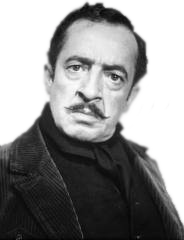
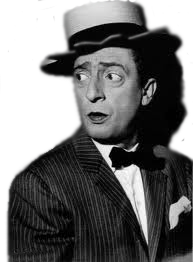

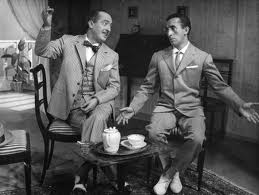
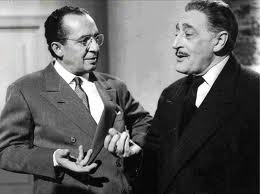
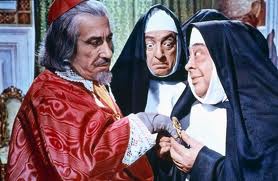
Piccerella,piccerè
Si nata comme a me napulitana
ma 'mpietto tien' 'o core furastiero,
mo c' 'o blue-jeans fai l'americana
e t' he 'mparata a ddì pure Y LOVE YOU.
Piccerè , piccerè ,
tu si nata dint' 'o vico 'e Scassacocchio,
Piccerè , piccerè ,
nun te credere ca i' sò nu battilocchio;
i' te saccio e te strasaccio,
tu si 'a figlia 'e Mastu Ciccio
ca venneva int' 'a Arenaccia
pesce fritto e baccalà
mo vuò fà Miss Universo,
tu si nata 'o mese 'e marzo,
sient' a me ca è tiempo perzo,
va, vattene addu mammà
Piccerè , piccerè ,
cagne strada, cagne strada,
siente a me.
Vuò fà tremila cose ogne mumento,
c' ' o motoscafo 'o sci pe 'ncoppa all'acqua,
'o sabato po' vai a fà 'o week-end
e te trattiene fin' 'o lunnedi.
Piccerè , piccerè ,
tu si nata dint' 'o vico 'e Scassacocchio,
Piccerè , piccerè ,
nun te credere ca i' sò nu battilocchio;
i' te saccio e te strasaccio,
tu si 'a figlia 'e Mastu Ciccio
ca venneva int' 'a Arenaccia
pesce fritto e baccalà
mo vuò fà Miss Universo,
tu si nata 'o mese 'e marzo,
sient' a me ca è tiempo perzo,
va, vattene addu mammà
Piccerè , piccerè ,
cagne strada, cagne strada,
siente a me.
